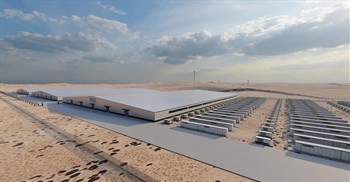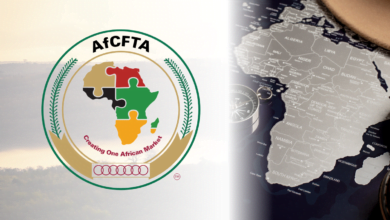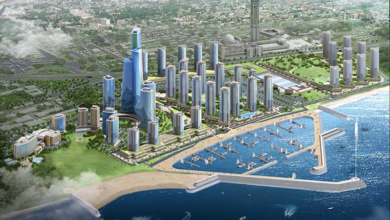
Twenty years after settling down in Africa, a new chapter begins in the history of Western Union, as the company continues to extend its reach on the continent. Between the acceleration of the digitizing trend and the willingness of central banks and governments to spread the use of banking services, Western union wants to develop the offer to its clients. Already, Western Union made possible for electronic wallet holders in countries like Kenya, Uganda and Ivory Coast to collect and send out money. What has been the strength of Western Union so far? What are the ambitions of this group hailed unanimously? Aida Diarra, Vice President for Africa at Western Union explains.
Interview
Western Union celebrated 20 years last year. A new page is turned. Have new ambitions come with that? What is your roadmap for the next decade and for the development of Western Union in Africa?
Absolutely. It has been the occasion to step back and reflect on the work done. And we realize that after 20 years, we’ve accomplished great things on the continent. We achieved, with our partners, the building of a vast network of more than 35 thousand outlets, we’ve diversified our offer of solutions by allowing our clients, in selected countries, to receive payments directly on their bank account, so no need to visit one of our locations. It is now possible to receive the money from home. We’ve also focused on new tendencies in the mobile industry, by offering transfer solutions using the electronic wallet. Today, in several countries including Kenya, Uganda and Ivory Coast, we offer electronic wallet holders the possibility to receive payments or send out funds. From now on, we enter a new era in which we capitalize on everything that made Western Union so strong. In other words, the network, a well-recognized brand across the continent, serious investments and, in conformity with the regulatory environment in which we operate, we are also building on digital technology, in order to increase our offer to our clients.
Knowing that new players are stepping in the money transfer sector, with different services or products, how do you plan on setting yourself apart from competition?
For us, as I just explained, what matters is to focus on new technologies and new channels to present our clients with a diverse portfolio of solutions. Of course, cash is not going to disappear. In today’s world, one continues to need cash. But what is clear today is that the tendency to digitize is growing because central banks and governments want to increase the use of banking services among the population and we must be able to accompany this movement by adapting our service offer.
African Diasporas in the world, including in Africa, are a major concern reflected in many new government policies, but also for private companies. As far as Western Union is concerned, what is your strategy with regards to this sizeable market segment?
I think we were one of the first companies to understand the place occupied by African Diasporas in their support to families left behind in their country of origin and to understand the importance of those transfers. On a macroeconomic scale, it is now clear that money transfers contribute significantly to African countries’ GDP, for some like Gambia, Liberia and Sierra Leone, even up to 20%. But also on a microeconomic scale, there is a multiplying effect for each of those transfers as they are used to fulfill general consumption or other needs. What is interesting is that in our line of work, we can channel these flows. So we are going to continue to make those transactions as easy as possible while developing new projects such as ‘Africa Diaspora Market Place’. This is an initiative launched in 2009 and it consists in working with the African diaspora based in the United States, which is where we started, to allow them to carry business projects; either where they live, within existing enterprises they want to help growing, or through new enterprises they want to create in their home country.
But what is truly fascinating is that no matter what is the host country and no matter how long a person has been living there, they really want to make a difference in their country of origin and bring all the competencies, capital, etc, … The second thing we learned, since we are working on the third version of this programme, is that on top of the financial contribution and even, beyond the capital input, what the diaspora is asking is technical support: How to build a business case with the banks, write up a business plan… And the third observation is that recently, I have had the pleasure to meet some of the entrepreneurs who benefitted from our support and they told me the most difficult thing they face in their home country when doing business is bureaucracy and regulations… There is progress to be made in all the different countries to put in place conditions allowing better channeling of the flows in order to facilitate investments. There are some countries that are relatively advanced in that matter. Morocco is one of them, with clear policies to support investment. I think there is room for progress on the scale of the whole continent.
But how concretely can you accompany them in their business project?
We are part of the ADM and we took advantage of the relationship we have with our banking partners to get those entrepreneurs involved with banks through discussion or collaboration. This partnership between Western Union, USAID and other NGOs started six years ago and it is still evolving since the last edition took place in November of last year. We selected the projects and we are in the process of organizing the accompanying framework.
How many projects have you supported in such ways over the past six years?
Between 20 and 30 and some are really innovative. One of them, for example, was the creation of an application allowing people to control the authenticity of medication via their mobile phone, which a real issue in countries like Nigeria, for example. We also received a lot of projects related to agribusiness and to ICT and their initiators are always showing unparalleled enthusiasm and passion for the continent.
About innovation: to what extent, at your level, are you able to support innovation on the continent?
Within the continent, a certain number of wallets are being made available and that is a growing sector. Recently, we also implemented the WU Connect Platform, which integrates with social media and
The evolution of international regulations in terms of counter terrorism, the more constraining tracking of operations… Did that force you to adapt?
Our line of work requires that we give special consideration to everything related to security and conformity. Of course, we also made the choice to invest in those domains, involving technology, training and information of our partner agents, as well as information of our clients, so that they are able to conform to the procedures.
Why did Western Union choose Morocco? What makes Morocco the attractive hub it is for multinationals such as Western Union, who want to enter the African market, or at least, the Francophone African Market?
Morocco was the most appropriate choice for us, ten years ago. We were precursors! Ten years ago, we were considering several countries. But just on the level of connections, Casablanca was offering us the possibility to travel easily to most countries of North, West, Central and even East Africa. Then we had a very positive reception regarding the opening of our representation office. There is also the proximity with our key partners and the customers. Europe is also close and it is a major sender for us. All of this made Morocco a natural choice for us. We also have regional offices in South Africa and Nigeria.
This tends to confirm the multinationals’ approach : Morocco is a hub for Francophone Africa?
It is the hub. For many corporations, it is an entry point in Africa, with gateways to the regional offices. For my part, I see this model more and more often.
And finally, let’s talk about women. Half or even more of the continent’s population. As a woman leading an important multinational, how do you push back the boundaries in order to help integrate women fully within influential circles in Africa?
This is indeed an important question for me, because I think obviously there is still progress to be made. At the same time, the more I look into this issue, the more I realize this continent holds a plethora of absolutely extraordinary women in leadership positions. We even have a woman head of State! In Nigeria, half of all SMEs are managed by women. We have billionaire women. Even though these examples are still anecdotal if we consider the numbers, they are revealing of an existing movement and we must continue in that direction. I think there is a big effort to be made as far as women leaders of the continent themselves. They must play a role in their own environment, as mentors. Every time I talk about this question in public, if you only knew the number of young women who come to me to tell me ‘you are a model’, not as in the self-congratulatory sense but in the sense that it gives them an indication that it is possible. The opportunities are there, they need to be seized!





